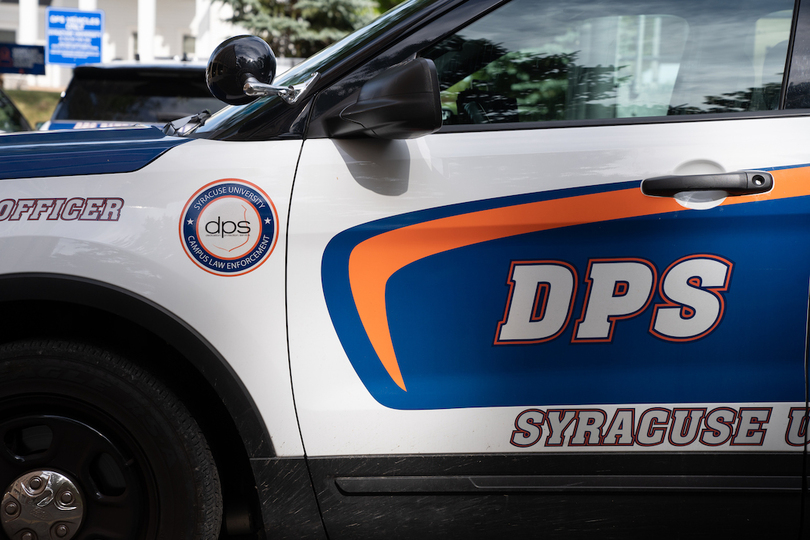SU plans to launch DPS review board by spring 2021 semester

The board will review appeals of decisions that DPS’ Internal Affairs makes regarding whether complaints against personnel are valid, but it will not have the authority to hand down discipline. Emily Steinberger | Photo Editor
The Daily Orange is a nonprofit newsroom that receives no funding from Syracuse University. Consider donating today to support our mission.
Syracuse University aims to have a review board for the Department of Public Safety up and running by the start of the spring semester, former United States Attorney General Loretta Lynch said during a virtual town hall Monday.
The university’s Public Safety Community Review Board, which would examine complaints against DPS, is part of Lynch’s review of the department. Chancellor Kent Syverud announced the review in February amid growing concerns with how DPS officers engage with the campus community, especially protesters and students of color.
Lynch proposed the board’s initial framework in September. During Monday’s town hall, Lynch said her team evaluated review boards at several other universities, including multiple SUNY schools, to inform their design for SU’s board. While many similar boards serve only an advisory function, Lynch’s team concluded that SU’s board should have more authority, she said.
“This board had to have more,” Lynch said. “The structure that we recommend would be among the most powerful citizen review boards we have seen.”
Monday’s town hall was one of three virtual meetings Lynch scheduled with members of the SU community this week. Attendees at the town hall were muted but had the ability to submit questions via the chat function.
SU’s board will review appeals of decisions that DPS’ Internal Affairs makes regarding whether complaints against personnel are valid, but it will not have the authority to hand down discipline, Lynch said. Instead, the board will submit recommendations to Syverud for his final ruling.
The board will also review and comment on new or modified DPS policies and training procedures related to interactions with community members. While the chief of DPS will still have the final say on whether to adopt a policy, they will have to respond to the board’s recommendations in writing.
Under Lynch’s current proposal, the board will consist of two undergraduate students, one graduate student, two faculty members, two administrators and two staff members, including at least one union member. The board selection process, which Lynch’s team has not yet finalized, will also consider diversity “along the lines of race, gender, age, orientation and ability,” Lynch said.
Members of the board will serve two-year terms and will invest a substantial time commitment into the board, Lynch said.
“People on the board for two years would build up a body of knowledge and experience,” Lynch said. ”We want to make sure there’s continuity, but we also want to make sure there’s fresh eyes on this.”
During her ongoing investigation, Lynch has heard consistent requests for greater transparency in DPS’ policies and a clearer accountability process for officers who engage in misconduct. The board should help address those concerns, she said.
The current outline of the board is subject to change as Lynch and her teams gather more feedback from the SU community, Lynch said.
“It is our hope this board will live on,” she said.





